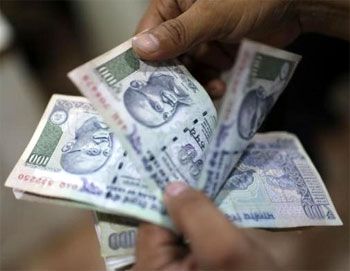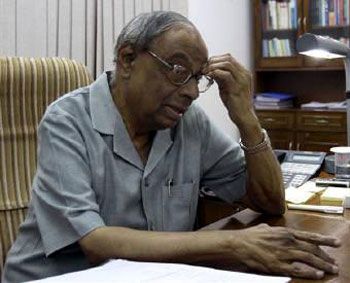Says shifting the roadmap for fiscal consolidation doesn't inspire confidence
 The Union Budget has introduced several measures to stimulate investments but it fails in terms of fiscal consolidation, said C Rangarajan, former chairman of Economic Advisory Council to the prime minister and former governor of Reserve Bank of India.
The Union Budget has introduced several measures to stimulate investments but it fails in terms of fiscal consolidation, said C Rangarajan, former chairman of Economic Advisory Council to the prime minister and former governor of Reserve Bank of India.
Speaking on the sidelines of the Madras Management Association (MMA) event, Rangarajan said the Budget has laid emphasis on increasing social spends and creating a social safety net, but the failure to abide by the earlier fiscal deficit target is a wrong signal.
Shifting the roadmap related to fiscal consolidation will not inspire confidence, he added.
The finance minister kept his commitment to keep the fiscal deficit at 4.1 per cent of the GDP for the current year. But for 2015-16, the fiscal deficit target has been raised to 3.9 per cent in the Budget from the earlier 3.6 per cent. Revenue deficit will continue to remain high, but will go down marginally to 2.8 per cent of GDP from 2.9 per cent.
While Finance Minister Arun Jaitley cited the 14th Finance Commission recommendations for reduced fiscal space and revised fiscal deficit targets, Rangarajan said Jaitley's argument doesn't hold ground.
He argued that while the Commission has advocated more tax to states at 42 per cent instead of earlier 32 per cent, the flow of resources from the Centre to the state through other channels has been cut.
Budget 2015: Complete Coverage
"Let me not underestimate the importance of the recommendations of the 14th Finance Commission. As far as the states are concerned, when the money comes through tax devolution it is an unrestricted one. The money goes into the state and the state decides how to spend it. But if comes through centrally sponsored schemes it means the states will have to implement the schemes. Therefore, the recommendation of the 14th Finance Commission to raise the devolution is an appropriate one” he said.
 He said the total transfer of resources has not changed much despite the recommendations. "On an average in the last three years it has been 64 per cent, perhaps it is now 65 or 66 per cent. After the first year of every Finance Commission’s recommendation, the transfer goes up a little bit. I don’t think the argument that fiscal space has reduced is right and hence the cause for raising fiscal deficit target doesn't hold ground," he said.
He said the total transfer of resources has not changed much despite the recommendations. "On an average in the last three years it has been 64 per cent, perhaps it is now 65 or 66 per cent. After the first year of every Finance Commission’s recommendation, the transfer goes up a little bit. I don’t think the argument that fiscal space has reduced is right and hence the cause for raising fiscal deficit target doesn't hold ground," he said.
He also raised questions on if the revised fiscal deficit target of 3.9 per cent will be adhered to and if the revenue projections are credible.
"The tax revenue is expected to grow by 15.8 per cent in 2015-16 and during this period GDP is expected to grow by 11.5 per cent. The tax buoyancy is 1.37 per cent. Will this be possible?" he said.
In 2014-15, GDP grew by 11.5 per cent, but the revenue grew by 9.9 per cent, so there is a question mark on whether the revenue projections will hold or not, argued Rangarajan.
Ofcourse there are few things have done in terms of tax measures, including service tax increase and 2% surcharge on the super rich, he said, adding, “These would garner some money, but there is a big jump between 9.9 per cent and 15.8 per cent that we are thinking in the range of growth. I personally think that he should have stuck to the old roadmap.”




.jpg)






